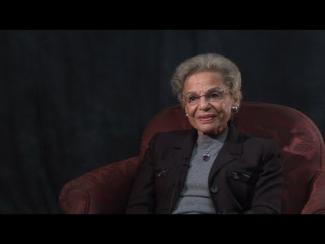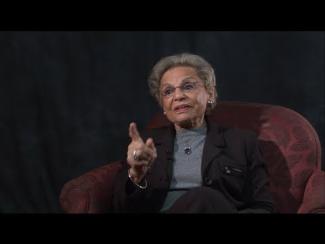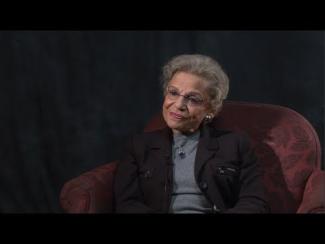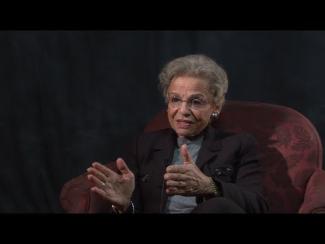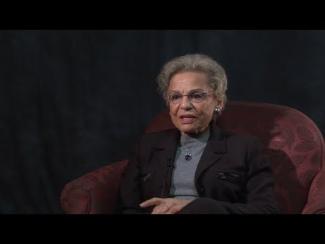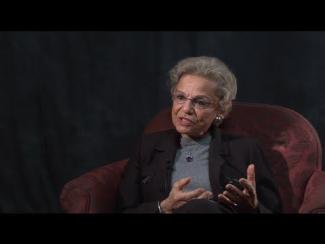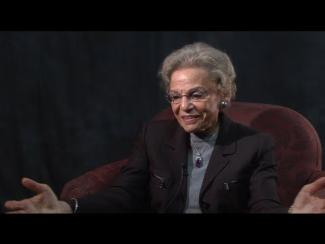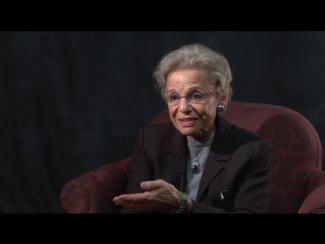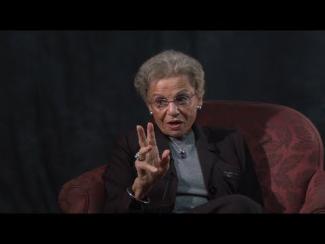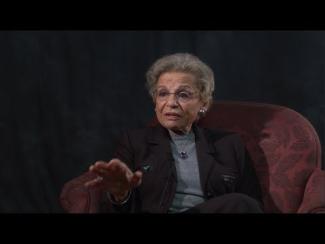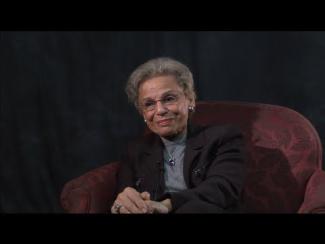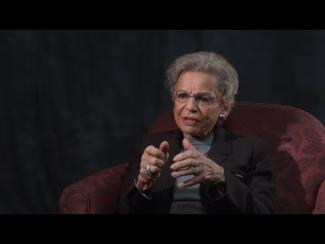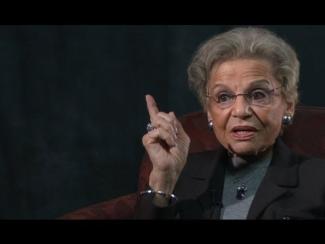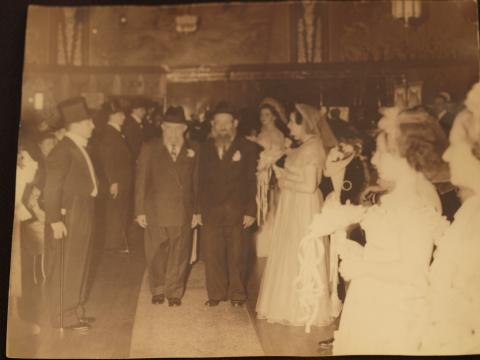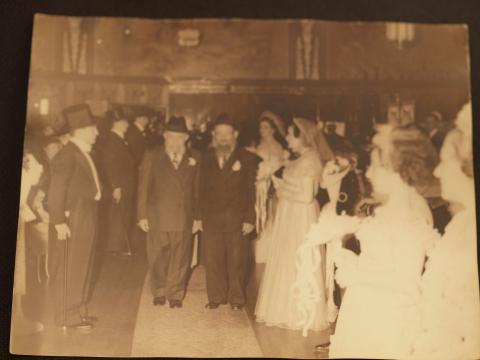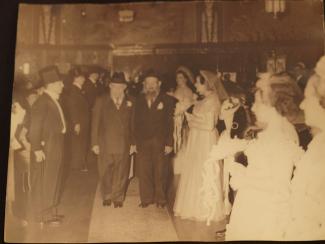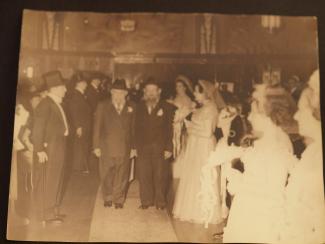The Yiddish Book Center's
Wexler Oral History Project
A growing collection of in-depth interviews with people of all ages and backgrounds, whose stories about the legacy and changing nature of Yiddish language and culture offer a rich and complex chronicle of Jewish identity.
Adina Gordon's Oral History
Adina Gordon, art historian and Yiddish speaker, was interviewed by Christa Whitney on November 4, 2011 at the Yiddish Book Center in Amherst, Massachusetts. She tells the stories of her grandparents' and parents' lives in Eastern Europe. Both parents arrived in America in 1920; she describes a visit to Ellis Island with her mother who had a wonderful memory and was a treasure trove of stories. Her father deserted the Kaiser's army and lived in the sewers of Berlin before impersonating a wealthy cousin and coming to the United States in 1920. He owned a grocery and delicatessen. Adina grew up in Brooklyn and reminisces about classes at the Brooklyn Museum to satisfy her mother's desire to enrich her cultural experience. Adina tells many stories about her religious maternal and paternal grandparents, who lived across the street from each other. Her father's mother told her about "coming out" at the palace in Vienna when she was sixteen. Her other grandmother, who grew up poor, became a wonderful baker and cook; Adina reminisces about her honey cake and apple strudel. Adina understood Yiddish from a young age because her grandparents spoke the language to her. She recalls her mother singing along to WEVD radio and reading her children Sholem Aleichem stories. Her mother, not religious and an ardent Zionist, taught her "independence." Adina's grandparents' religious beliefs imbued every moment of their days. She herself identified strongly as Jewish but was also fervently American; to her the two did not conflict. She won a contest sponsored by Mayor La Guardia describing what being an American meant to her. Instead of going to college, she became involved in Hashomer Hatzair, a Zionist youth movement, and went to live in a communal house in Williamsburg, Brooklyn. She and her husband were placed at the American-Israeli Shipping Company which was illegally supplying Israel with ammunition in 1948. She eventually ended up working for the CEO of El Al and traveling to Israel many times. She describes Israel in the 1950s – a very different place than it is today. Many years later, inspired by an Israeli archeologist, she studied biblical archeology at Columbia University and then pursued a master's degree in art history and Egyptology at New York University. She turned out to have a talent for finding lost works of art and wrote her PhD thesis on an American sculptor who lived in Giverney. Although they were not religious, Adina and her husband worked hard to provide a Jewish milieu for their children. They recognized that they would not be able to recreate the world they had grown up in but could transmit Jewish values as well as love of Yiddishkayt and Israel to the next generation. Although she works less steadily now, Adina is still involved with relevant professional societies and occasionally appraises or authenticates works of art. When her husband died last year, she relocated from the suburbs to New York City. Adina ends by telling a story about helping to get a relative of her husband's out of Vilna in the 1970s. Her advice to parents is to make a rich Jewish environment for their children when they're young and impressionable, before their peers become the dominant influence.
This interview was conducted in English and Yiddish.
Adina Gordon was born in Brooklyn, New York in 1929.

